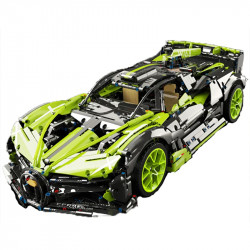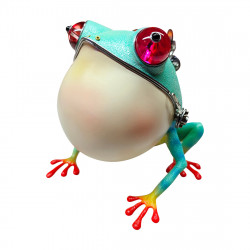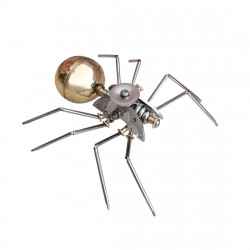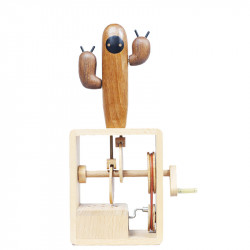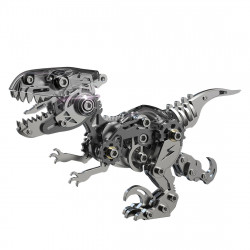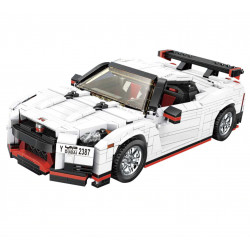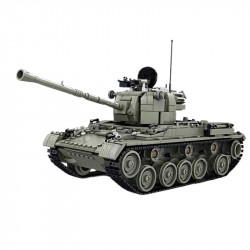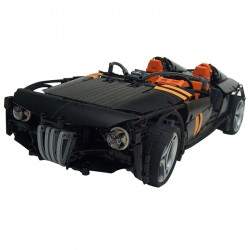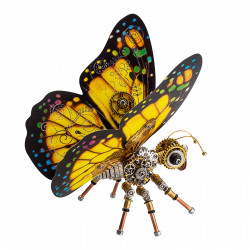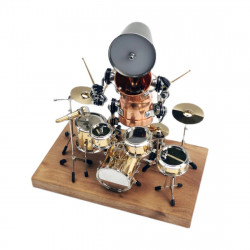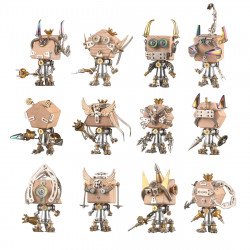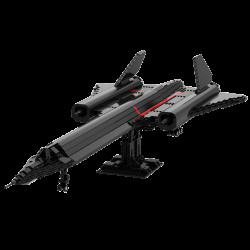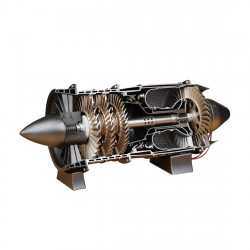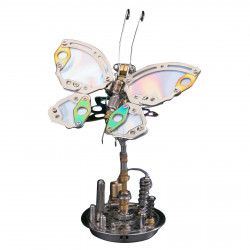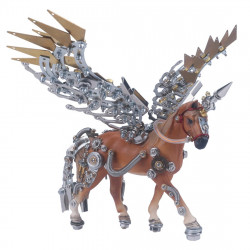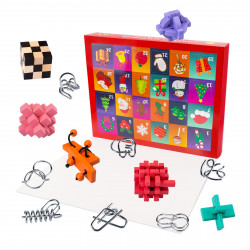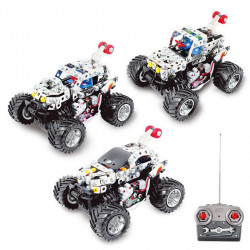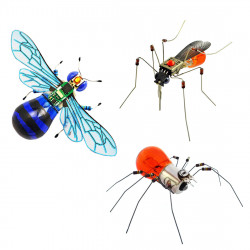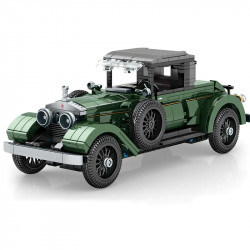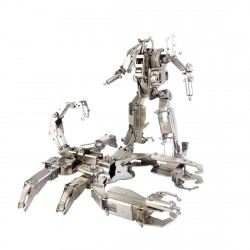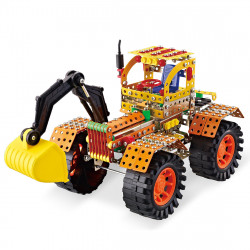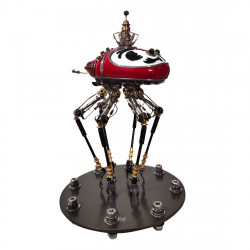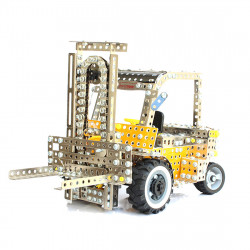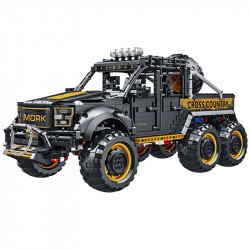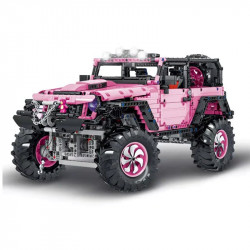How Puzzles Help Improve Children's Problem-Solving Skills

How Puzzles Help Improve Children's Problem-Solving Skills
Puzzles are an enjoyable and effective way to give your kids interesting and pleasant learning experiences. Simple puzzles and jigsaws aid in the development of children's problem-solving abilities and other positive qualities like concentration, forbearance, patience, strategic thinking, analytical abilities, finger strength, etc.
They give children an enjoyable method of practising planning. By memorizing the tactics, locations, colours, and shapes needed to finish the puzzle games, your children learn how to solve issues, test ideas, and plan their next move.
They also teach children to overcome obstacles, deal with disappointments, and embrace challenges. Today, we'll discuss the cognitive advantages of puzzle games for kids and how these games aid in developing and enhancing problem-solving abilities.
The Science of Solving Puzzles
Puzzles are entertaining and instructive since they teach your kids to use critical thinking to piece together the picture while developing necessary cognitive abilities. These provide a range of mental, social, and emotional advantages for children, all of which can support healthy development.
Wriggling, sliding, and flipping puzzle pieces into place can also improve hand-eye coordination. Your children will develop small-muscle control as they pick up, twist, and move the pieces, which will help them see the broader picture.
As a result, kids can enjoy themselves while learning many wonderful things. Puzzles, for instance, can assist your children with recognizing and comprehending visual parallels and differences. They are also quite helpful for children's memory development.
Because puzzles are engaging and mentally stimulating, research indicates that they improve brain function in children and adults.
Puzzles improve short-term memory by strengthening chemical bonds between brain cells, which increases mental acuity and speed. They also help your kids relax while having fun by keeping them occupied and encouraging focus and recall.
Puzzles can help your children unwind and fall asleep by relieving stress. Teaching children to fit the correct pieces into corresponding slots helps them develop their logical thinking, analytical and critical thinking abilities, and spatial and visual reasoning skills.
Problem-Solving Skills Children Develop Solving Puzzles
The secret to helping kids develop their problem-solving abilities is to support their learning. With puzzles, your children can select from various difficulty levels corresponding to their skill level.
They can then progressively increase their efforts by pushing themselves with increasingly complex tasks, which will help children develop independence and self-confidence as they go. These activities encourage each child to learn independently, giving them a sense of achievement and inspiring them to take on new tasks.
This drive is the cornerstone of problem-solving because it teaches your kids the value of cultivating patience, tenacity, and focus through applying analytical and strategic thinking.
Let's take a brief look at the fundamental problem-solving abilities that children acquire from completing puzzle games.
Analytical skills
Children learn to solve problems by using logical reasoning through puzzles. Kids learn to examine patterns and available pieces to draw connections between the game's matching components.
By creating a methodical approach, this analytical process strengthens their problem-solving skills and aids in their ability to overcome obstacles.
Strategic and critical thinking
Children need to learn to think critically and strategically to finish a problem. By taking patterns, forms, and colours into account, these abilities assist kids in figuring out where each piece should go.
Patience, focus, and concentration
Solving problems requires children to be able to focus and concentrate, which can be difficult for young children. However, puzzles aid in the development of these abilities by correctly and persistently engaging them.
As your children work hard to finish the problem, this exposure to puzzle-solving activities encourages them to grow in patience and tenacity.
As your children work hard to finish the problem, this exposure to puzzle-solving activities encourages them to grow in patience and tenacity.
Solving puzzles frequently involves overcoming obstacles and setbacks, which requires persistence. Your children will benefit from this problem-solving ability in the future in areas like hobbies, schooling, social interactions, personal issues, etc.
Completing jigsaw puzzles fosters children's problem-solving abilities, which are essential to their general cognitive growth. Let's examine the primary cognitive advantages of puzzle-solving for kids in more detail.
Cognitive Benefits of Solving Puzzles
Puzzles can support cognitive development by promoting internal drive, self-entertainment, and independent play. They also assist children in developing focus, perseverance, and resilience because they demand concentrated activity and provide rewards for finishing tasks.
They offer stimulating educational activities to help children increase their attention span, enhance their hand-eye coordination, foster visual perception, and fortify their cognitive growth.
The most significant cognitive advantages children can experience from solving puzzles are discussed here.
Memory improvement and cognitive flexibility
Solving puzzles can greatly enhance children's memory and cognitive flexibility. To put everything together, they need to practice short-term memory by learning each component's location, colour, and form.
Children's memory skills are strengthened as they retain patterns, which is crucial for encouraging memory retention and adaptable thinking. Children who possess this newly acquired cognitive flexibility also benefit from being able to solve problems in many ways by applying logical reasoning and creative thinking.
Spatial awareness and reasoning
Children with spatial awareness can perceive their surroundings and comprehend how objects relate to one another. Puzzles aid in the former by allowing children to use their visual-spatial abilities to define the proper alignment.
These abilities are essential for various healthful pursuits, including reading maps, playing sports, and navigating unfamiliar environments. Spatial awareness is the foundation for improving spatial reasoning.
It entails figuring out the alignment and orientation of various shapes to visualize and comprehend how they fit together. Puzzles educate your children to identify patterns in the size, colour, and shape of pieces and utilize that information to determine their proper placement through entertaining games.
Increased attention span
Puzzles help children's attention spans grow by encouraging interesting learning tasks that require focus, perseverance, and concentration.
Mental stimulation
Through peaceful and pleasant activities, mental stimulation helps children develop resilience and manage stress while fostering a sense of accomplishment. Puzzles provide mentally challenging learning opportunities that promote the growth of social and emotional competencies.
They give children vital mental exercises that aid in developing critical problem-solving skills, teaching them to approach issues methodically, divide them into manageable chunks, and arrive at solutions more quickly.
Furthermore, playing jigsaw puzzles stimulates various areas of the left and right hemispheres of the brain, strengthening neural connections and improving logical reasoning, spatial reasoning, and visual processing.
Puzzles benefit children by improving their cognitive abilities. As they work through puzzles, your children have the opportunity to develop their fine motor skills, hand-eye coordination, and spatial awareness. These activities also teach children how to reason and think logically.
Puzzle Types and Their Benefits
To assist you in choosing the puzzle game that best suits your child's needs, below are some common kinds for kids:
- Jigsaw puzzles – Kids must correctly assemble tiny, interlocking pieces to create a complete picture in these timeless puzzle games, which come in various difficulty levels. They help kids improve their motor skills, logical reasoning, critical thinking, and focus.
- Brain teasers – puzzles that use logic exercises, mathematical challenges, or riddles to test children's ability to think and solve problems. These puzzles foster creativity by stimulating the mind through educational entertainment (gamification).
- Shape sorters – These puzzles immediately improve their hand-eye coordination, spatial awareness, and problem-solving abilities by asking children to match pieces with the appropriate slots and holes.
- Number and word puzzles – Word searches, crosswords, and sudoku enhance vocabulary, spelling, and numerical reasoning while assisting children in honing their mathematics skills and communication talents.
- Maze puzzles – These puzzle games provide a fun and engaging method to guide children through a network of paths resembling a maze to reach a specific goal. Because of this, maze puzzles can improve problem-solving abilities, spatial awareness, and logical reasoning all at once.
Given this variety and the advantages, it's simple to understand why puzzles continue to rank among the most popular presents for kids.
Top Puzzles for Kids
The best puzzles for kids to watch out for in 2024 are listed below.
3D metal puzzle butterfly
For children aged 14 and up, the Phantom 3D metal puzzle butterfly is an excellent way to practice problem-solving skills. It gives your kids two puzzle projects for the price of one by having them construct a metal butterfly on a platform.
This metal puzzle will improve problem-solving skills and teach your children endurance, patience, and focus.
Dinosaur Jigsaw Puzzle
With four distinct puzzle games in this collection, your child will have the perfect opportunity to practice healthy competition with peers. The puzzle is ideal for improving fine motor skills, focus, hand-eye coordination, and problem-solving abilities.
Solar System Floor Puzzle
This interactive jigsaw puzzle combines education, enjoyment, and problem-solving. As your children solve the puzzle, they will learn about the planets and the solar system and develop their problem-solving and hand-eye coordination skills.
Conclusion
Puzzles benefit children in many ways, including improved motor and mental development, visual perception, attention span, problem-solving abilities, and cognitive development. By encouraging children to think critically, they promote problem-solving skills.
Children practice logical reasoning and other cognitive abilities to overcome obstacles as they figure out how to fit the pieces together. These endeavours greatly benefit their general cognitive growth and well-being and equip them with the abilities they will need to succeed in a variety of fields in the future.
Additionally, puzzles are vital to children's emotional and social development because they teach them critical skills for stress management, frustration management, problem-solving, resilience building, and creative thinking.

